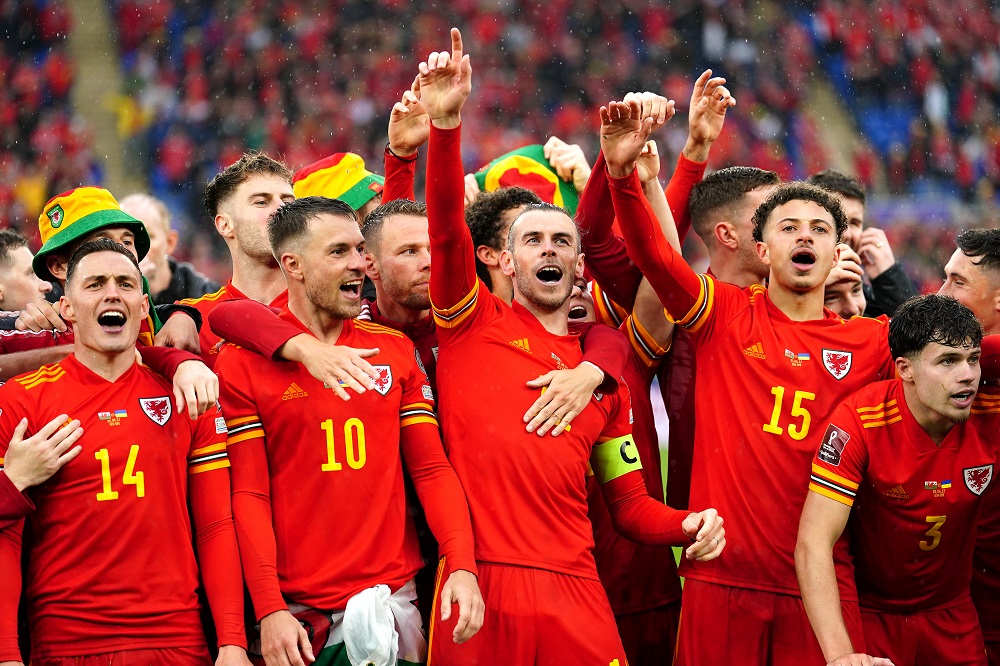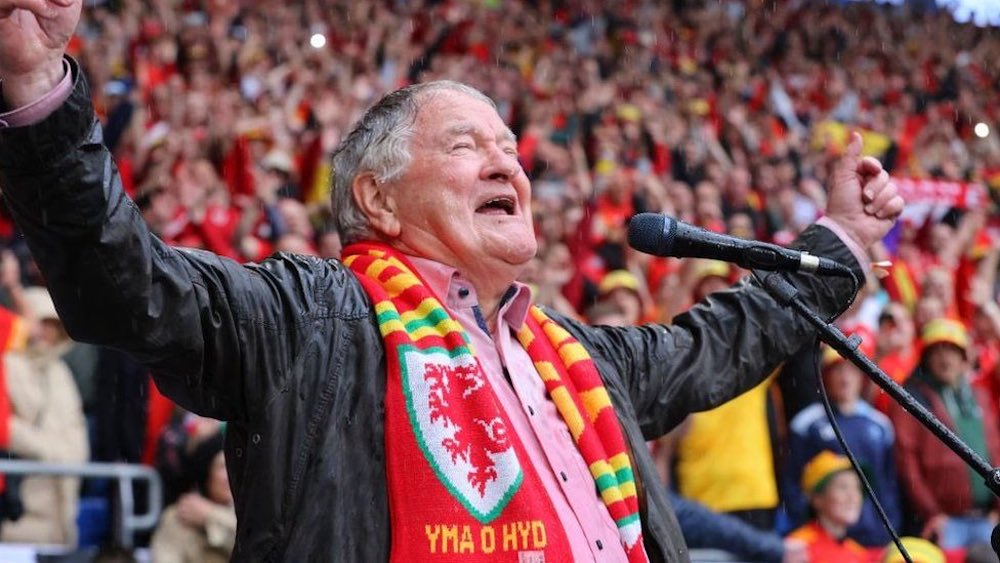Don’t put the Red Wall behind a paywall

Kevin Brennan
You can read this article in Welsh here.
The 5th of June 2022 will live in our collective memories as the moment Wales confirmed our status as a major footballing nation on the global stage by finally qualifying again for the men’s World Cup.
I was there in 1985 at Ninian Park, when, not for the first time, a controversial penalty incident involving Scotland denied us. I was there in the old National Stadium in 1993 against Romania when another penalty drama stopped us from reaching USA ‘94. And I was there in Bordeaux and Paris during Euro 2016 to witness something I had almost surrendered hope of ever seeing in my lifetime, Wales at a major tournament finals.
But beyond the new dawn on the pitch, the FAW has in recent years promoted a rich cultural identity, including a strong sense of pride in the Welsh language. After all, the survival of Welsh as a living language into the 21 st century is nothing short of a linguistic miracle.
So taking one of the language’s most vibrant and popular showcases and locating it behind a streaming or broadcasting paywall would be an act of cultural vandalism. Yet that seems to be what has been agreed in relation to Wales matches post 2024.
Since the FAW established its new home in the Cardiff City Stadium in my Cardiff West constituency under the slogan ‘Together Stronger’, the old inter club fan rivalry which sometimes blighted Welsh matches has been replaced by a sense of unity and pride in our team, our culture and in the Welsh language.
Post the establishment of S4C in the 80s, and the growth of Welsh medium education, the notion that the language belongs to all of us in Wales has grown ever stronger. It includes people like my mother Beryl Evans from Nantyglo, a coal miner’s daughter now in her 90s who never learned Welsh, or people like me, born in Cwmbran, who had no Welsh lessons in school but learned some as an adult, or like my daughter Siobhan, born in Cardiff, and thanks to Welsh medium school fluent in Cymraeg.

At Welsh games Hen Wlad fy Nhadau sung acapella and louder than ever, Dafydd Iwan and Sage Todz reviving an old song for new generations, and the Barry Horns leading the terraces in bilingual song convey this message that the language belongs to us all. Each nuance of our footballing identity is both reflective of our musical and linguistic traditions and progressive in our embrace of diversity and inclusion.
But with sporting and cultural assets, one of the critical drivers behind growth is exposure. And in the case of the Wales’ men’s international football, whether it be the Nations’ League, European Championship or World Cup Qualifiers, every moment since 2015 has been passionately covered by Malcom Allen and Nic Parry on our Welsh language Public Service Broadcaster, S4C.
The pair’s iconic and often viral narration of the highs and lows of our turbulent footballing journey has resonated with people of all backgrounds, regardless of first language, thanks to the free-to-air remit S4C was given at its conception by the UK Parliament in the 1980 Broadcasting Act.
Now, just as our national journey of footballing success enters a new era, the FAW’s participation in UEFA’s deal with Viaplay, which without changes will put Welsh-language broadcasting of international football behind its paywall, represents a potentially huge cultural own goal.
The FAW has been rightly praised for the success of the Welsh team and has marketed Welsh football as a ‘movement’. It has been less forthcoming about keeping live Welsh commentary on
S4C, the public service broadcaster set up for the purpose of helping to preserve and grow the use of the Welsh language.
When I wrote to the FAW to raise these issues in April, I received no answer. In the subsequent euphoria of qualification, it is perhaps understandable that the importance of free-to-air Welsh language commentary on S4C has been parked for now, but if the FAW is to make real its stated commitment to Welsh culture it will have to provide some answers soon.
Support our Nation today
For the price of a cup of coffee a month you can help us create an independent, not-for-profit, national news service for the people of Wales, by the people of Wales.






Kevin bemoaninh the fact he wasn’t taught Welsh, so could he explain why he wasn’t? Could it be the same reason as for me-the Labour Party prevented it being taught!
It may have been.but I doubt that young Brennan of 1A was really responsible.